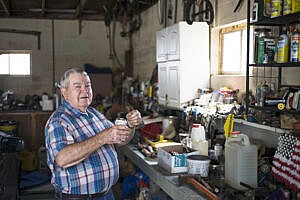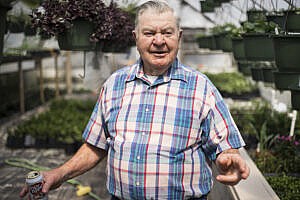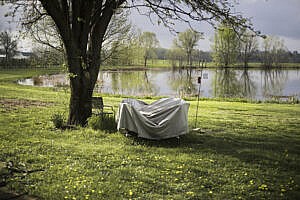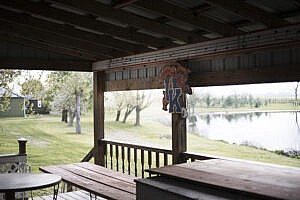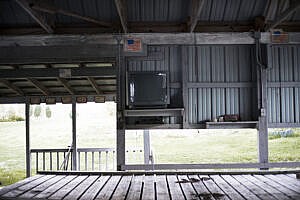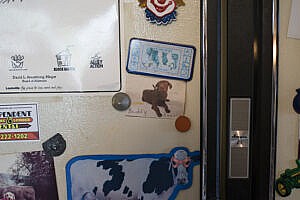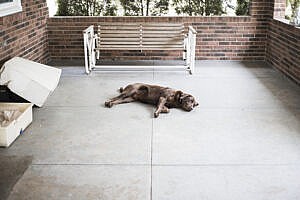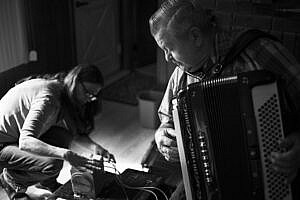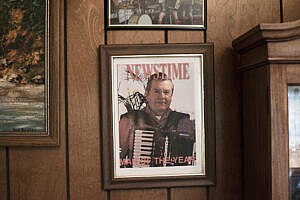Gilbert Kaelin (80) is a farmer with heart and soul. He proudly shows us his 60 cattle, the meadows and fields, the workshop and his half dozen greenhouses. The sprawling farm, with a small lake in the middle, meets the farm of his brother Lawrence (90). His farm is in Crestwood, about 15 miles from Louisville. “In 1963 we had to move further out of the city, so we could expand our farm.
For decades we lived in St. Matthews - along with the Zehnders, Oechslins and Bisigs on the family farms. In the end, we were the last farming family on Kaelin Drive. We also had to leave St. Matthews, ‘the Farm Town’, ‘the Potato Country’, as the area was popularly called.” Gilbert is the youngest of a very musical family. All of the children and the father played the accordion. “None of us has ever learned to read music. Our mother, Catherina Kamer, came from a family of immigrants from Sattel, Switzerland; she could yodel wonderfully.
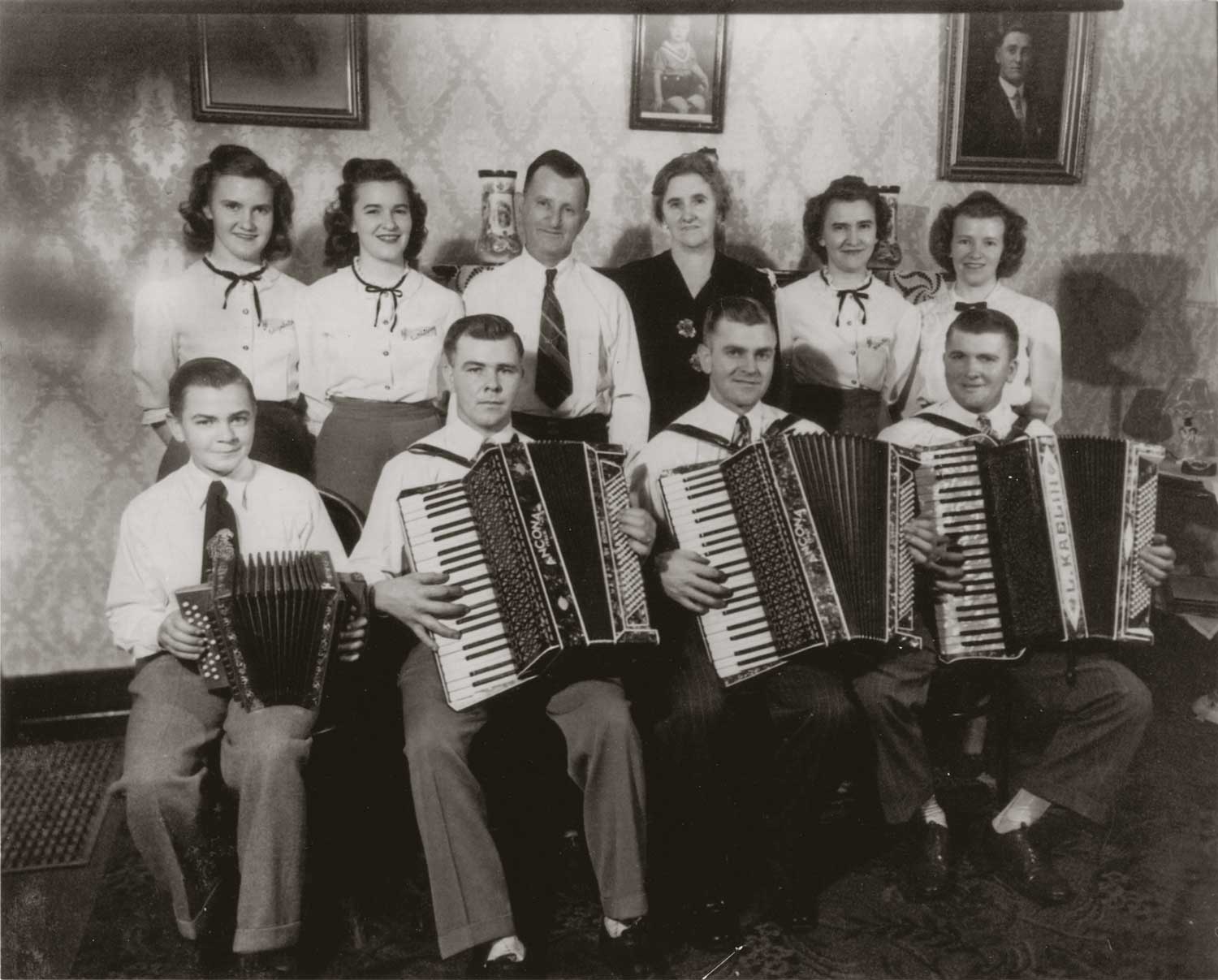
‘The Kaelin’s’, as a family band were known far and wide. They played for dances and at hundreds of weddings and festivities of all kinds in Louisville. And at the Swiss Park we played our schottische and polka music every other Saturday night, for decades. People came in droves to the Swiss Hall; the ‘heart of the Swiss’ in Louisville.”
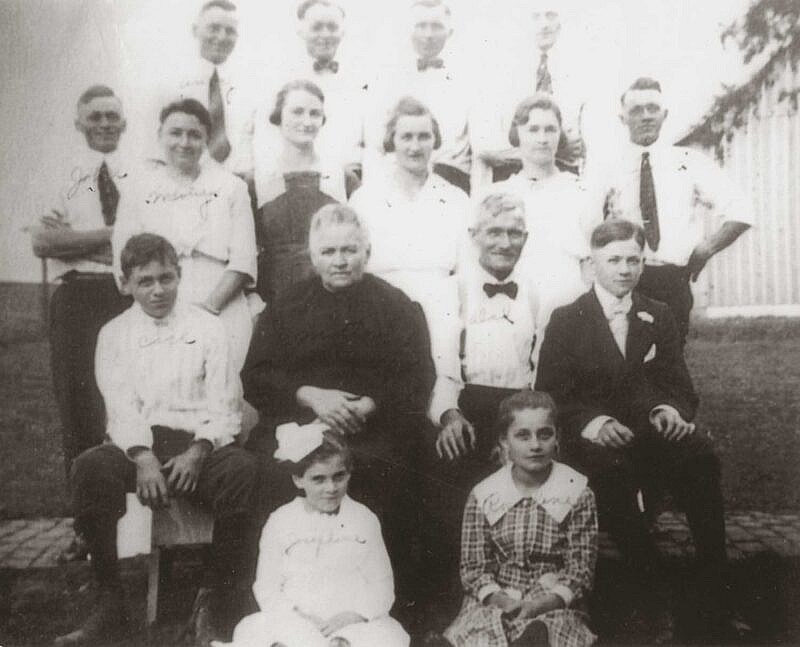
Farmer life, music, and not to forget, church, played an important role in the Kaelins’ life. “On weekdays we milked our cows at five o’clock in the morning; but on Sundays we all had to go to the morning mass at 5.15 A.M. and then came home to milk. We usually did not get to bed until about one o’clock after our Saturday music engagements… short nights! My older brother was allowed to leave church a bit earlier and would get us some fresh bread at the Swiss bakery nearby - the best in Louisville! We were only allowed to enjoy this special treat after milking, with a glass of milk.”
Gilbert Kaelin has four grown children. Mike lives in New Hampshire, is president of two Swiss clubs and an avid player of Swiss music. Tim can also play Swiss music and lives in Florida. Judy also lives in Florida and is a dance teacher. Sharon lives near her father in St. Matthews. She helps him in the household and in the garden. Gilbert has been separated from his wife for a long time - but they are still friends, he adds with a smile.
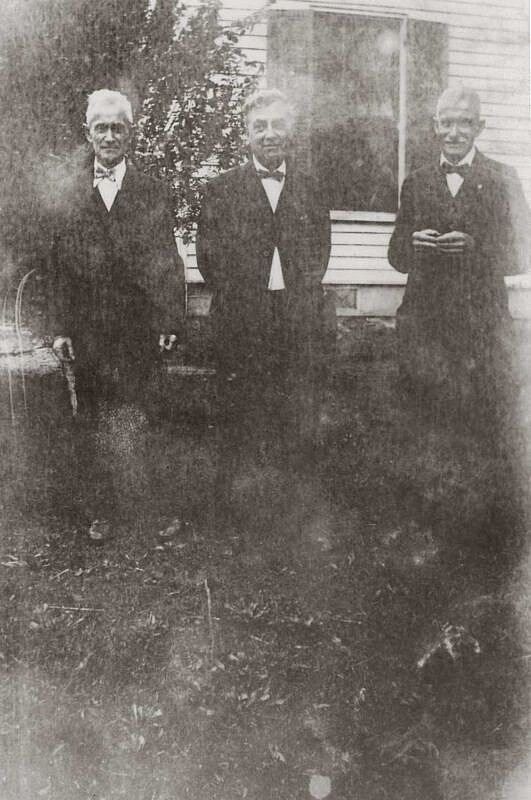
He is knowledgeable about his ancestors. “I once traveled to Einsiedeln, in 1973, on a European trip; it was my very first vacation ever. My brother Lawrence and his sons took over the chores of the farm and milking of the cows while I was gone. Joe Birchler, also from an immigrant family that settled in Louisville, was our tour guide. I did not find out where my grandparents lived exactly, but I saw women in Willerzell, who looked like my sisters! Communicating was difficult, in the seventies, relatively few people in Willerzell spoke English and we did not speak Swiss German. So we often ate Wienerschnitzel and French fries - we recognized those items on the menu! I remember the many beautiful flower boxes on the houses, and the cows… almost entirely Brown Swiss.
Being a farmer and making music is my life. Although I do not speak Swiss German and I do not have a Swiss passport, I am very proud of my Swiss heritage. It has always been said in Louisville that the Swiss are good, honest people. In our business of buying and selling cows, people could rely on us; that was our image.”
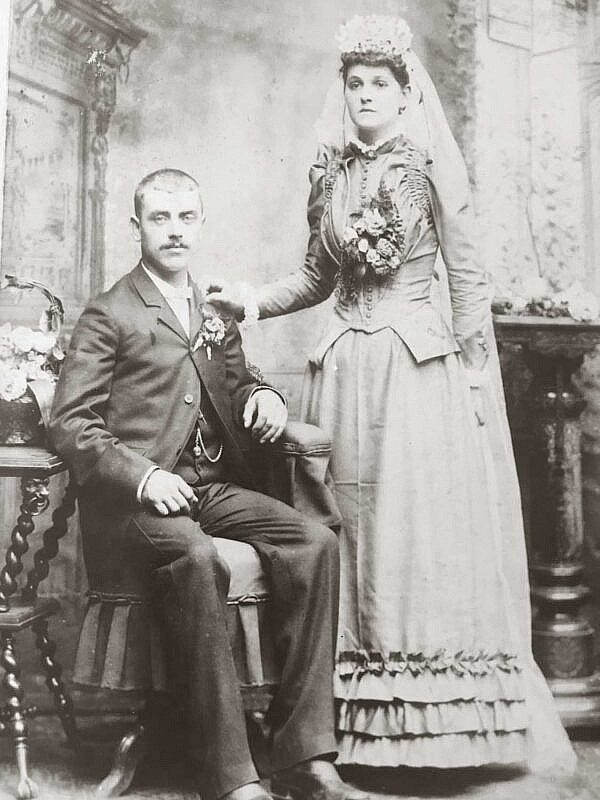
His grandfather, Anton Jacob Kaelin, emigrated from Willerzell to Louisville in October 1880. In Switzerland, he lived on a farm with his family. There were ten children in his family, one of whom was his twin brother Karl. The family had the local nickname “Grundmärtels”. His grandfather rarely spoke of his life in Switzerland. In his baggage Anton Jacob brought a cowbell, which now has a place of honor with Gilbert, the third generation.
“As a child, I barely understood grandfather; sixty years after his immigration to the United States, he was unable to speak much English.” The Swiss mostly spoke Swiss German among themselves, although, the pastor, nuns and teachers, could speak German also. Gilbert says his grandfather, together with his two brothers Johann Alois (Louis) and Joseph Isidor, came to America in a large group with other immigrants. His twin brother Karl stayed in Switzerland.
“The immigrants were promised work and land to come to America. Anton was given $200 for the trip to America. I think they just wanted to get rid of people back then; $200 was a lot of money! Grandfather was a fine man, a good guy.
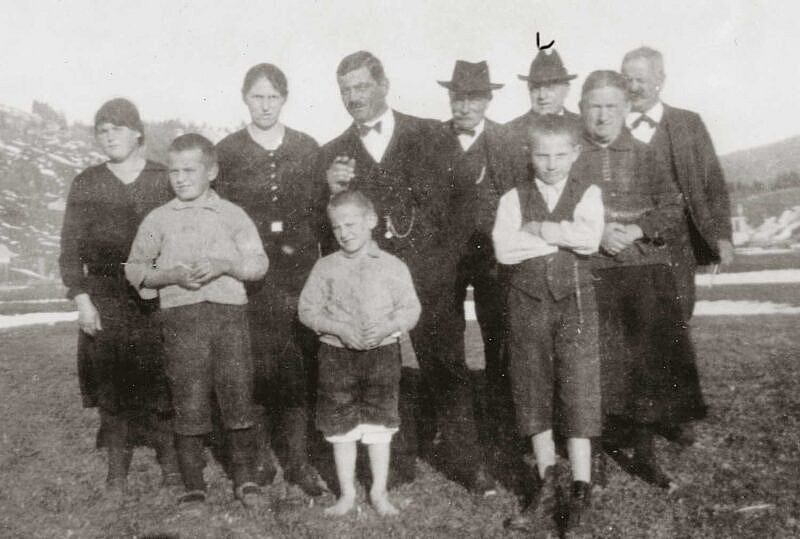
He was a little man with a moustache, who only weighed about 120 pounds. He only earned $8 a month when he started milking here in America. Today, they earn that in half an hour. He first worked for a farmer until, later, he was able to lease a farm. In Switzerland, Anton had met a girl from Willerzell, Anna Catharina Schoenbaechler. She traveled to America a little later than him, on her own. Here they got married and raised 14 children together. My father, Albert Anton, was the eldest in the second generation of Kaelin. He purchased a 72 acre farm in St. Matthews for his equally large family.”
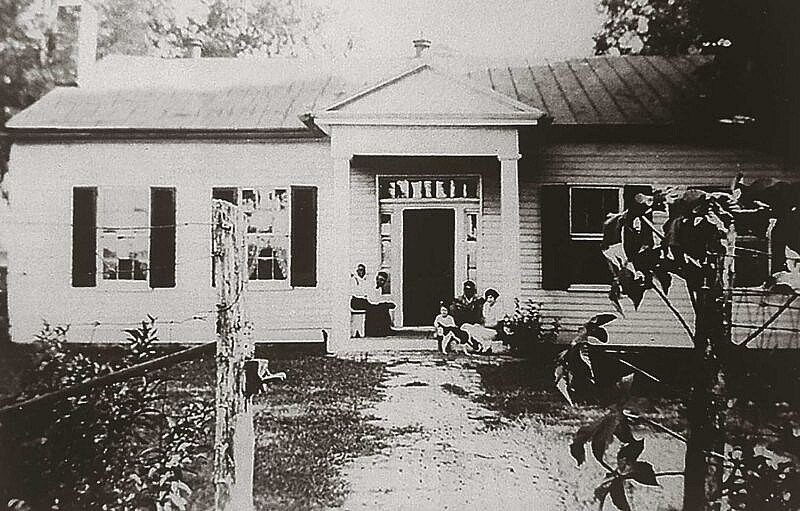
Gilbert Kaelin (*1935)
- Anton (Andy) Jacob Kaelin (1860 – 1945), “Grundmärtels”, Willerzell, Louisville; son of Joseph Isidor Kälin (1829 –1879) and Anna Catharina Schönbächler (1836 – 1920), Willerzell.
- Anna Catharina Schoenbaechler (1866 – 1927),
“Stöckgädlers”, Willerzell, Louisville; daughter of Benedikt Schönbächler-Ruhstaller (1827 – 1878), Councilman and Barbara Schönbächler-Ruhstaller (1830 – 1914), Willerzell.

